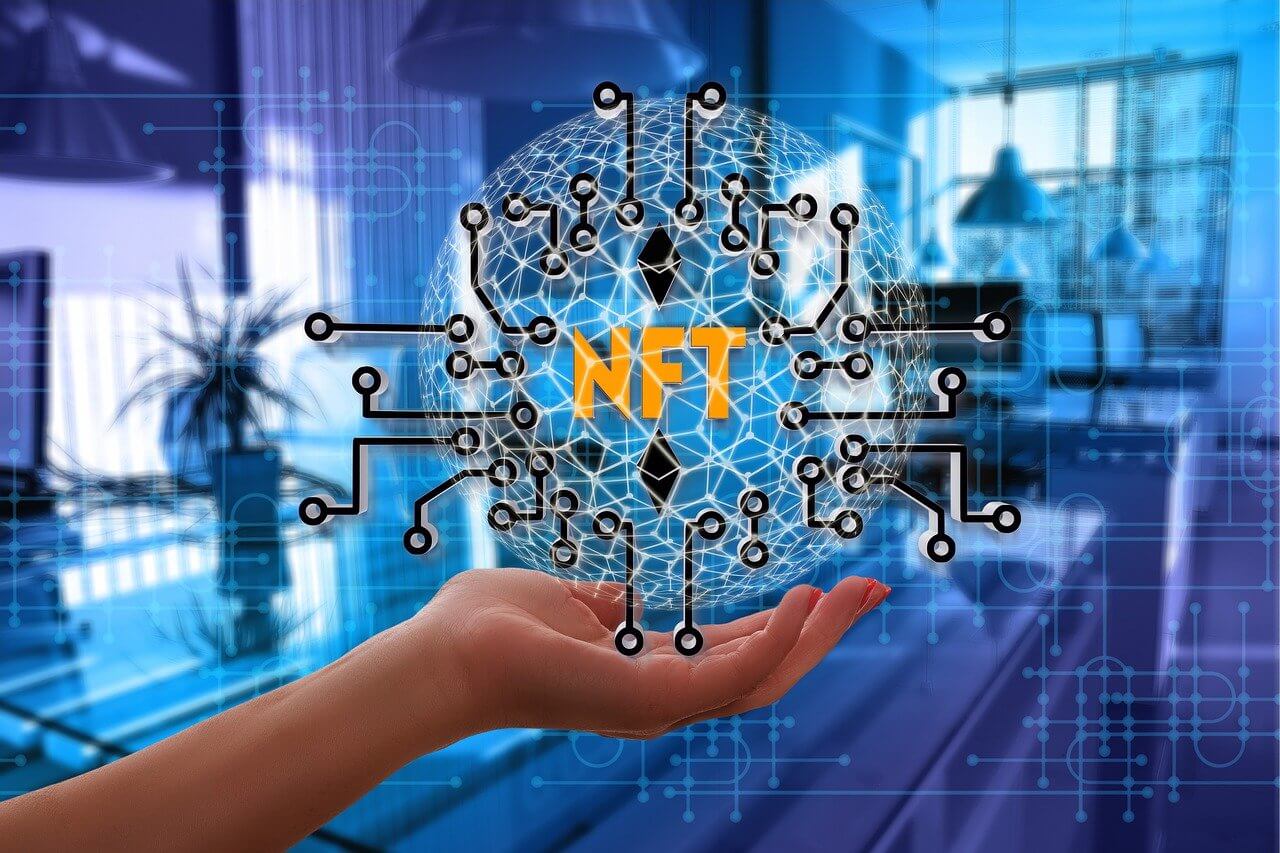Top 10 NFT Scams To Avoid Today: How They Work
One of the most important aspects of blockchain technology is using a unique digital identification, which cannot be replicated, swapped, or subdivided. As a digital proof of ownership, an NFT may represent a particular digital asset's financial worth. Unfortunately, with this advancement in technology, there are many NFT scams.
They could also lead to identity theft, so you should ensure that your private info is off the Internet (here is how to remove your personal data from the Internet). Let's dive in.
Scam Detectors Most Trusted Websites in Online Security
- Guard.io (100): Surf the web safely. Clean up your browser, remove maliscious extensions and check for privacy violations.
- Incogni.com (100): Delete your personal data from the internet and protect against scams and identity theft.
- ExpressVPN (100) Stay secure and anonymous online - Best VPN Out There
What Is An NFT?
An asset's non-fungible blockchain status emphasizes its scarcity, uniqueness, and genuineness. To describe anything unique is to describe it as NFT (non-feasible to copy). Consider the difference between a painting and a picture of the Mona Lisa. For example, a signed card of the same person on a conventional baseball card. Therefore, NFTs are in low supply regularly.

Why Is NFT The Future?
Everything is being digitized in this modern era. NFT is secured digital creativity linked to blockchain technology for its security and is shared online worldwide. The number one benefit of NFT is it takes the ownership criteria to another level. But NFT is only as valuable as someone is willing to pay for it. It does not have any intrinsic value like bonds. However, people nowadays are investing in popular NFTs and are eager to spend buckets of money.
Investing scams exist online as with any other, and the victims lose a bunch of money. When users get tricked into handing over sensitive information like their crypto wallet's private key via phishing websites, they are putting themselves at risk.
Here are the Top 10 NFT scams to avoid:
1. Customer Service Resemblance
Pranksters will masquerade as customer service representatives for blockchain markets and contact unwary consumers via Telegram or Discord. NFT fraudsters would use fake links and official-looking sites to get private data and accessibility to crypto wallets under the guise of addressing problems.
2. Replica Shops
It is very typical for scammers to copy prominent NFT marketplaces to construct bogus storefronts. As long as you don't know what you're doing, it will be easy to fool you into handing over your hard-earned cash to a false network that has no value.
3. NFT Scams For Investors
NFT's online anonymity allows trade fraudsters to build enterprises that appear promising investments, only to leave with the money they acquired from relevant parties.
4. Stealth Drop Hoax
There are many excellent initiatives found on Twitter. Thanks to Twitter's recommendation system, participating in NFT discussions on Twitter may result in more frequent recommendations for your Twitter Feed. Scammers have started using the “Stealth Drop” as a new fraud method.
People who come across this site with the promise of easy money get dragged into a rug pull. Stealth Drop's major giveaway uses a Discord channel that is only accessible via invitation. They invite just those who are inclined to succumb to the fraud.
5. Pump-and-Dumps
An example of a pump-and-dump strategy is when a group purchases NFTs to inflate demand. Investors who believe the NFTs have value would join the auction and increase their bids. Fraudsters would sell off the NFTs as soon as the price rises to make money.
6. Scams Using Online Bidding
Investors who seek to resell their bought NFTs on a secondary market may fall victim to a scam. Suppose you advertise your NFT for purchase on an NFT market. In that case, buyers may use low-value cryptocurrencies instead of your chosen currency before informing you, putting your funds at risk.
7. Fraudulent Freebie And Airdrop Campaigns
There are freebie scams anywhere there are cryptocurrencies. Cryptocurrency devotees are the primary focus of giveaway scams, in which fraudsters promise free NFTs associated with various NFT markets.
Swindlers use social media platforms like Facebook and Twitter to pretend to be actual NFT trading platforms to advertise giveaway initiatives for NFTs. The con artist promises you a freebie NFT in exchange for spreading the word about their scheme.
8. NFT Scams With Rug Pulls
It is a fraud in which the advocates of a project, after promoting it extensively on social media, abruptly cease to support it and withdraw their investors' cash. Because of this, the worth of the NFT drops to zero, resulting in losses for shareholders. Suppose the originators of an NFT decide to disable the customer's ability to resell tokens. In that case, this is an example of a rug pull.
9. Technical Support Cons
The ” technical support ” fraud is an easy-to-follow form of a phishing scheme is the “technical support” fraud. In this scam, a fraudster pretends to be a customer service representative for a blockchain market or an NFT venture. Scammers want to get in touch with unsuspecting victims to get their private information.
They use fake sites and links to trick people into handing over their data and accessing their cryptocurrency wallets. Telegram, Reddit, and Discord are the most common places to see this fraud.
10. Phishing Scams
Scammers impersonating actual NFT initiatives or team members are known as phishers. You've probably seen bogus pop-ups and sites requesting your wallet keys. NFTs and all the bitcoins you put in your wallet would be gone when the scammers get your secret keys. NFT investment begins with searching for a place to purchase and sell NFTs.
Thousands of search engine results will appear on the Internet, but a few bogus trade websites lurk. Fake sites might be hard to tell apart from real ones. You can only purchase NFT by creating a crypto wallet account. Metamask was reportedly the subject of a phishing attack among the most famous cryptocurrency wallets.
Scammers might ask for the wallet seed phrase and use it to breach your digital wallet and empty its contents. You generally have to enter the wallet address to conduct a transaction. Several public forums, such as Telegram, Discord, and so on, are likewise rife with malicious pop-up advertising.
It's a bit scary to contemplate the number of frauds nowadays. Every other week, cybercriminals develop a new strategy to con people. Scams abound, but if you know what to look for and how to spot them, you'll be secure while exploring the fantastic world of NFTs.
How To Check If An NFT Website Is a Scam
If you feel a website trying to sell you NFTs might be suspicious, feel free to verify it using our unique Scam Detector website validator below:
Verify a website below
Are you just about to make a purchase online? See if the website is legit with our validator:
vldtr®

How To Check If An NFT Is Authentic?
Verifying the authenticity of an Non-Fungible Token can be a crucial step to ensure you're buying or dealing with a legitimate digital asset. Besides our validator tool above, here are some other steps you can take to check if an NFT is real:
1. Check the NFT Marketplace: Start by purchasing or interacting with NFTs on reputable NFT marketplaces such as OpenSea, Rarible, SuperRare, or Foundation. These platforms have a vetting process for artists and creators, reducing the likelihood of counterfeit NFTs.
2. Verify the Creator's Identity: Ensure that the creator's identity matches the information provided on their social media profiles or personal websites. Many artists and creators have social media accounts where they promote their NFTs and confirm their authenticity.
3. Review the Metadata: Metadata contains information about the NFT, including its title, description, and attributes. Check that the metadata aligns with the artist's intent and style. Discrepancies in the metadata can indicate a fake NFT.
4. Examine the Artwork or Content: Take a close look at the NFT's content, whether it's digital artwork, music, videos, or any other form of digital media. Compare it to the artist's previous work to ensure consistency in style and quality.
5. Verify Ownership and Provenance: On blockchain-based NFT marketplaces, you can view the ownership history and transaction details of an NFT. Make sure that the NFT's ownership history is clear and free from suspicious activity. If it has changed hands multiple times quickly, it may raise red flags.

6. Check for Verification Badges: Some NFT platforms, like Twitter and OpenSea, offer verification badges for creators and artists. If the creator has a verification badge, it's a positive sign of their authenticity.
7. Research the Creator: Do some research on the creator or artist, including their background, reputation in the art community, and any previous NFT sales. Look for online articles, interviews, or references to their work.
8. Verify Digital Signatures: Some artists may use cryptographic signatures to prove the authenticity of their work. These signatures can be embedded in the metadata or provided separately as proof of ownership.
9. Avoid Suspiciously Low Prices: If an NFT is being sold at an extremely low price compared to the creator's previous work or the market value for similar NFTs, it may be a scam or counterfeit.
10. Use NFT Verification Tools: Some third-party websites and tools have emerged to help users verify NFT authenticity. These tools may analyze blockchain data, metadata, and other information to assess an NFT's legitimacy.
11. Seek Expert Opinions: If you're uncertain about an NFT's authenticity, consider reaching out to experts in the field, such as art curators, blockchain analysts, or artists familiar with the creator's work. They may be able to provide valuable insights.
How To Report an NFT Scam
Let your family and online friends know about these Top 10 NFT scams by sharing this article on your social media accounts. You could also officially report suspicious NFT activity to the FTC (Federal Trade Commission) using the link below:
How To Protect Yourself More
If you want to find out the most prevalent scams on a regular basis, make sure to subscribe to the Scam Detector newsletter. You'll receive periodic emails – no spam whatsoever.
Meanwhile, educate yourself with some other fraud-related articles under this paragraph. Finally, feel free to use the comments section below to expose other NFT or crypto scammers:
- How to stop scam calls
- How to report phone scams
- Crypto Scams: FULL LIST
- How to report scam emails.
- How to report a scam website
- Join Ledger
Verify a website below
Are you just about to make a purchase online? See if the website is legit with our validator:
vldtr®


TOP 4 MUST-WATCH FRAUD PREVENTION VIDEOS
1. Top 5 Amazon Scams in 2024 2. Top 5 PayPal Scams in 2024 3. How To Spot a Scam Email in 2024
- Latest Posts by Selma Hrynchuk
-
How To Stop Robocalls
- -
Taking Control of Your Data Privacy: Protecting Yourself in 2024
- -
The Urgency of Removing Personal Information from the Internet
- All Posts














Ceymra ORDER 231004172416235 in september 2023. when ask about my order
the response is zigzag still I have not received my order. In my view Ceymra is a online
fraud company who must be check &control.
Etum is a scam ordered a e-bike from Etum/galeaire and received a $5 pair of sunglasses
Hi.
I used website raribblecraft.com to sell my photo. On lady contact via instagram. She liked my photos and wanted to buy them via Nft marketplace. She helped my to open account. First i need ed to pay 0.2ETH for mining fee. But I told her, I don’t have money for that. See told that She can pay mining fee by herself. We did so. She brought 7 photos and paid 7 photos mining fee too. After that prosses She told that She want one more picture. And now i have to pay mining fee myself. But in this site, there is two money accounts. One is balance and the other is profit. All ETH what I get from selling was in the profit account. And this account is made Only for withdraw. I can’t withdraw from there directly to balance account where i can pay mining fee. I contacted costumer service. They told that i have to first identify owner ship to send photo of document. And there is withdrawal refundable fee 1.35ETH what I need to pay. They can not take that amount from profit account. I rasked many times why i need to pay refundable fee if i get it back anyway. They couldn’t get me good answer. I send them photo of passport. I Gave my bank name and IBAN, and address. I think that lady is part og the scam. Her Instagram is sharonart29. And her raribblecraft username is sharon art.
I didn’t paid that fee. But I am concern ed what they can do with my passport information and bank details.
I have all our conversation on email.
Please stop their doing!
Best.
I was scammed of 10k, bought and it was fake. I need this money back any suggestions?
After enduring financial loss due to a deceitful company, Cape Ware Tech emerged as a beacon of trustworthiness. Their professionalism and unwavering dedication were a breath of fresh air. In stark contrast to the unscrupulous company, Cape Ware Tech demonstrated genuine care, successfully recovering my funds and reinstating my belief in ethical business practices. Despite the initial scam, their integrity and expertise transformed my ordeal into a tale of redemption. I wholeheartedly endorse them for those encountering similar challenges—an authentic solution to rebuilding trust.
Is NFT still in vogue?
NFT’s are a scam…